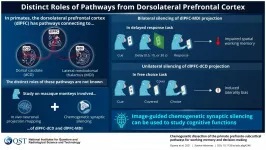"To our knowledge, this is the first study to link antibiotic use with the growing risk of early onset colon cancer - a disease which has been increasing at a rate of at least 3% per year over the last two decades. (3) Junk food, sugary drinks, obesity and alcohol are likely to have played a part in that rise, but our data stress the importance of avoiding unnecessary antibiotics, especially in children and young adults," said Ms Sarah Perrott, from the University of Aberdeen, Aberdeen, UK, presenting the data.
Using a large Scottish primary care database of up to 2 million people, the study looked at nearly 8000 people with bowel cancer (colon and rectum) matched with people without bowel cancer. It found antibiotic use was associated with an increased risk of colon cancer across all ages, but the risk was increased by almost 50% in the under-50s compared to 9% in the over-50s. In the younger age group, antibiotic use was linked to cancers in the first part of the colon (the right side). Quinolones and sulfonamides/trimethoprim, which are used to treat a wide range of infections, were associated with these right-side cancers.
Dr Leslie Samuel, Aberdeen Royal Infirmary, UK, senior author of the study, explained that the contents of the right side of the colon are more liquid and that the natural bacteria living there, called the microbiome, may be different from further along the colon.
"We now want to find out if there is a link between antibiotic use and changes in the microbiome which can make the colon more susceptible to cancer especially in younger people. It's a complex situation as we know that the microbiome can quickly revert to its previous state even when the bowel has been cleared out for a diagnostic procedure such as an endoscopy. We don't yet know if antibiotics can induce any effects on the microbiome that could directly or indirectly contribute to development of colon cancer," said Samuel.
Commenting on the new research, Professor Alberto Sobrero, Ospedale San Martino, Genoa, Italy, explained that, of the 2 million people diagnosed with colon cancer worldwide each year, (4) younger people aged 20-40 with colon cancer generally have a worse prognosis than older people because they are often diagnosed later.
"Physicians are less likely to investigate a patient with abdominal discomfort for colon cancer if they are in their 30s than if they are in their 70s, and younger patients are not eligible for bowel cancer screening. As a result, their cancer is usually diagnosed at a later stage, when it is more difficult to treat," he said.
Like Perrott and Samuel, he believes that physicians should now think of bowel cancer in younger patients with abdominal symptoms, and he supports more research into the multiple possible causes of the rising incidence of colon cancer in this age group.
"It is too early to say if excessive use of antibiotics could be a causative factor, and we need to understand more about the possible role of the microbiome in bowel cancer before we consider the impact of antibiotics on the intestinal flora. However, the new research does remind us that antibiotics should not be given unless they are really needed, and we cannot exclude the possibility that unnecessary use of antibiotics may be exposing people to an increased risk of cancer," Sobrero concluded.
INFORMATION:
Notes to Editors
Please make sure to use the official name of the meeting in your reports: ESMO World Congress on Gastrointestinal Cancer 2021
Official Congress Hashtag: #WorldGI2021
Disclaimer
This press release contains information provided by the author of the highlighted abstract and reflects the content of this abstract. It does not necessarily reflect the views or opinions of the ESMO WGI Organisers who cannot be held responsible for the accuracy of the data. Commentators quoted in the press release are required to comply with the ESMO Declaration of Interests policy and the ESMO Code of Conduct.
References
1 Abstract SO-25 'Global rise in early-onset colorectal cancer: an association with antibiotic consumption?' will be presented by Dr Sarah Perrott during Session VII: Presentation of Selected Colorectal Cancer Abstracts on Friday, 2 July, 08:00-12:00 CEST. Annals of Oncology, Volume 32, Supplement 3, July 2021
https://www.worldgicancer.com/
2 Klein EY, Van Boeckel TP, Martinez EM et al. Global increase and geographic convergence in antibiotic consumption between 2000 and 2015.Proc Natl Acad Sci U S A. 2018 Apr 10;115(15):E3463-E3470.
3.Vuik FE, Nieuwenburg SA, Bardou M et al. Increasing incidence of colorectal cancer in young adults in Europe over the last 25 years. Gut 2019 Oct;68(10):1820-1826.
4. IARC/WHO. Globocan 2020. Colorectal cancer. https://gco.iarc.fr/today/data/factsheets/cancers/10_8_9-Colorectum-fact-sheet.pdf
About the European Society for Medical Oncology (ESMO)
ESMO is the leading professional organisation for medical oncology. With more than 25,000 members representing oncology professionals from over 160 countries worldwide, ESMO is the society of reference for oncology education and information. Driven by a shared determination to secure the best possible outcomes for patients, ESMO is committed to standing by those who care about cancer through addressing the diverse needs of #ONEoncologycommunity, offering #educationforLIFE, and advocating for #accessiblecancerCARE. Visit http://www.esmo.org
About the ESMO World Congress on Gastrointestinal Cancer
The ESMO World Congress on Gastrointestinal Cancer represents the year's premier gathering of international oncology professionals, discussing the latest emerging data and new research in this rapidly advancing scientific field and dedicated to improving the lives of patients impacted by diseases of the GI tract.
SO-25 - Global rise in early-onset colorectal cancer: an association with antibiotic consumption
S. Perrott1, R. McDowell2, P. Murchie1, C. Cardwell2, L. Samuel3
1School of Medicine, Medical Sciences and Nutrition, University of Aberdeen, Aberdeen, United Kingdom, 2Centre for Public Health, School of Medicine, Dentistry & Biomedical Science, Queen's University, Belfast, Belfast, United Kingdom, 3Department of Clinical Oncology, Aberdeen Royal Infirmary, NHS Grampian, Aberdeen, United Kingdom
Background: Since the late 1980s, global antibiotic consumption and colorectal cancer (CRC) rates in those aged less than 50 years have soared. As the gut microbiome modulates many human processes, significantly altering microbiome structure and diversity with antibiotic therapy has previously been shown to influence CRC genesis in older adults. To our knowledge, no study before has investigated antibiotic usage in early-onset CRC (EOCRC). This study will investigate the association between exposure to antibiotics and risk of EOCRC predisposition, and also evaluate antibiotic usage in older adults with CRC for comparison.
Methods: A nested case-control study was conducted using Scottish primary care data. CRC cases, diagnosed between 1999 to 2011, were identified from GP records and matched with up to 5 controls. Analysis were conducted separately in EOCRC cases (diagnosed =50 years). Prescriptions for oral antibiotics (by drug class and by anaerobic/non-anaerobic effect) were extracted and total antibiotic exposure period determined for each matched set. Total exposure time in days was categorised into 0, 1-15, 16-60, and >60 days. Cases and controls were described and conditional logistic regression used to calculate odds ratios (OR) and 95% confidence intervals (CI) for the associations between each exposure and CRC (by tumour location), adjusting for comorbidities. Test for trend was used to evaluate any exposure-response relationship.
Results: 7,903 CRC (5,281 colon, 2,622 rectal) cases and 30,418 controls were identified. 445 cases were aged under 50 years. 45% were prescribed antibiotics during the exposure period. Use of antibiotics was associated with increased risk of colon cancer in both age-groups,?particularly in the EOCRC cohort (= 50 years (ORadj (95%CI) 1.09 (1.01, 1.18), p=0.029). Antibiotic use was associated with a significantly increased risk of proximal colon cancer (pCC) among the under?50s (ORadj (95%CI) 3.78 (1.60, 8.92), p=0.002), but not among the older age-group (ORadj (95%CI) 0.89 (0.72, 1.11), p=0.315). This difference was of statistical significance (p=0.001). Among both age-groups, most classes of antibiotic were not significantly associated with colon, rectal, or distal colon cancer. However, quinolones and sulfonamides/trimethoprim were associated with pCC in the EOCRC cohort only (quinolones ORadj (95%CI) 7.47 (1.40, 39.94), p=0.019; sulfonamides/trimethoprim ORadj (95%CI) 4.66 (1.66, 13.09), p=0.003). Rectal cancer was not associated with antibiotic usage in either strata, with the exception of non anti-anaerobic antibiotics in the EOCRC cohort (ORadj (95%CI) 1.70 (1.06, 2.74), p=0.029). There was limited evidence of a positive exposure-response relationship between antibiotic use and risk of CRC, with the exception of pCC in the younger cohort (p-trend 0.004).
Conclusion: Our findings suggest antibiotics may have a role in colon tumour formation across all age groups, particularly in those aged less than 50 years. It is possible that exposure to antibiotics could be contributing to the observed increases in EOCRC, particularly in the proximal colon. If confirmed, our study will provide further reasons to reduce, where possible, frequent and unnecessary antibiotic prescribing.
Legal Entity Responsible for this Study: The authors.
Funding: This work was supported by Cancer Research UK (reference C37316/A25535)
Disclosure: All other authors have declared no conflicts of interest.


